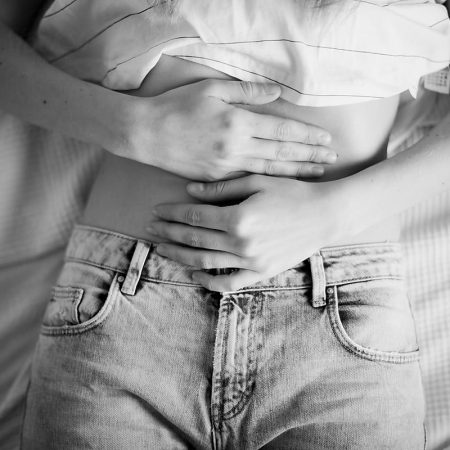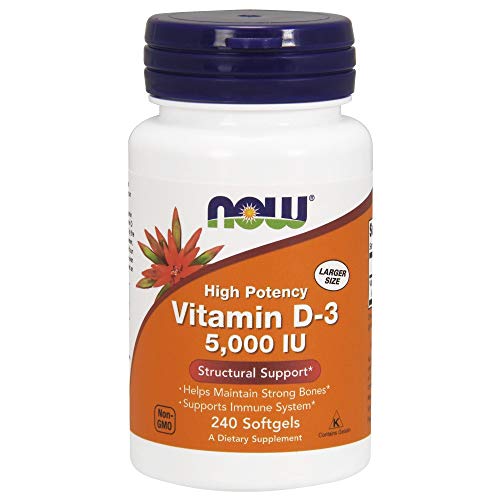What is Premenstrual Syndrome (PMS)?
Premenstrual syndrome (PMS) is defined by the American College of Ob/Gyn (ACOG) as physical or behavioral symptoms that occur during the 5 days before the onset of menses and cause significant social and economic dysfunction. Such symptoms must be present for at least 3 consecutive cycles. Symptoms are most severe in the 4 days before menses and 2-3 days after the onset of menses. The most common physical manifestations of PMS are abdominal bloating, extreme fatigue, breast tenderness, headache, hot flashes and dizziness. The most common behavioral PMS symptoms include mood swings, irritability, anxiety, tension, depression mood, increased appetite and food cravings.
Be aware that most women of reproductive age experience some mild form of physical and/or emotional symptoms 1-2 days before the onset of menses. However, these symptoms are mild and do not interfere with functioning or quality of life, and thus do not constitute PMS.
What is Premenstrual Dysphoric Disorder (PMDD)?
The most severe form of PMS that significant distress and interfere with usual activities.
How is PMDD diagnosed?
Notably, there are no lab tests or physical exam findings that are used to diagnose PMS or PMDD. The diagnosis must be made by your healthcare provider based on detailed history and documentation of established criteria. Most doctors recommend the use of the Daily Record of Severity of Problems (DRSP) form, which has been a scientifically validated tool used by patients to keep inventory of the timing and nature of symptoms.
As with most conditions, women should work closely with their primary care physician or Ob/Gyn to rule out other causes for their symptoms such as different mood/ anxiety disorders, thyroid disorders, substance abuse and medication side effects, to name a few.
Herbal Remedies for PMS
Herbal remedies for premenstrual syndrome (PMS) are among the vitamins and supplements women spend billions on each year.
Decoding the Common Remedies:
Acupuncture
Used in traditional Chinese medicine for thousands of years in treating women’s health issues, acupuncture is garnering more and more attention in western medicine to treat a variety of illnesses. In a systematic review of three scientific trials, acupuncture revealed to improve mood and physical symptoms of PMS., Although the research is in its infancy and acupuncture has not been directly compared to standard therapies in head-on trials, it still holds promise.
2. Vitex Agnus-Castus/ Chaste Berry
Vitex Agnus-Castus/ Chaste Berry is a shrub native to the Mediterranean and Central Asia which has been used in treating gynecologic complaints for centuries. Research has shown this herb to be effective in treating the physical symptoms of PMS, however, the evidence is inconsistent. Uncommon side effects include GI and skin reactions. Women taking certain psychiatric medications, birth control, or who are being treated for hormone-sensitive cancers should not use chasteberry.
>> Shop the highest-reviewed chasteberry supplements here.
3. Vitamin D & Calcium
Vitamin D promotes calcium absorption in the gut and maintains adequate calcium and phosphorus concentrations in the body to enable normal growth and metabolism. It is also involved in modulating neuromuscular and immune function and it serves as an anti-inflammatory hormone. 80% of daily requirements is obtained by UVB exposure and 20% received through dietary intake. Foods rich in Vitamin D include fatty fish (salmon, tuna, mackerel) and fish liver oils. Fortified foods such as milk, ready to eat breakfast cereals and some brands of orange juice and yogurt are also a rich source of Vitamin D. A recent study revealed that vitamin D supplementation was associated with a reduction in incidence of some physical and emotional PMS symptoms. Another study found that women who consumed four servings a day of low-fat dairy or yogurt or fortified orange juice had a 40% lower risk of PMS than those who did not. Additionally, a double blind randomized clinical trial found that calcium supplementation alleviated mood symptoms in PMS. Of note, excessive calcium has been linked with an increased risk of heart disease so consult your physician prior to initiation.
>> Shop the highest-reviewed vitamin d supplements here.
>> Shop the highest-reviewed calcium supplements here.
4. Evening primrose oil
Plant native to North America, containing fatty acid gamme-linolenic acid (GLA), used by native Americans for bruises, minor wounds and GI complaints. It is usually available in capsule form. Most studies of evening primrose oil have not found it to be helpful for PMS and there are conflicting results regarding its use for alleviating breast tenderness.
>> Shop the highest-reviewed evening primrose oil here.
5. Vitamin B6
Naturally present in foods such as chickpeas, tuna, salmon, chicken breast, potatoes, and fortified breakfast cereals, vitamin B6 (pyridoxine) is involved in hundreds of enzymatic reactions, including the synthesis of neurochemicals such as serotonin and dopamine. Several studies have shown the benefit of Vitamin B6 supplementation in treating PMS symptoms, however, results have been inconsistent across the board. A systematic review found evidence that doses of Vitamin B6 up to 100 mg day may be beneficial in alleviating PMS symptoms, however the review as limited by methodological flaws in most of the studies.
Caution is advised as too much vitamin B6 is associated with serious side effects such as neuropathy, skin changes and gastrointestinal symptoms. Vitamin B6 can also interact with certain medication so a consultation with your doctor prior to use is highly advised.
>> Shop the highest-reviewed Vitamin B6 supplements here.
6. Magnesium
Found abundantly in the body, magnesium regulates a variety of biochemical reactions including muscle and nerve function, blood glucose control and blood pressure regulation among others. It is found in leafy green vegetables, spinach, nuts, legumes, seeds and whole grains. Magnesium deficiency is uncommon in otherwise healthy people who eat a varied diet because the kidneys will limit urinary excretion of magnesium. In a recent literature review, magnesium supplementation was found to be effective in the prevention of PMS symptoms while another study found that oral magnesium can alleviate PMS mood symptoms.
Average daily recommended intake of magnesium for healthy adults is 300-400 mg. Supplements come in many formulations but you may prefer magnesium-taurate or magnesium-glycinate for a more calming and relaxing effect. If you desire a laxative effect (for constipation), then consider magnesium citrate. Suggested dosing is 300 mg once to three times daily. A combination of 200 mg magnesium +50 mg vitamin B6 daily has also been used (https://www.ncbi.nlm.nih.gov/pubmed/22069417) . Side effects of excessive magnesium include diarrhea, abdominal cramping and nausea. In excessively large concentrations, magnesium toxicity can lead to muscle weakness and difficulty breathing.
>> Shop the highest-reviewed magnesium supplements here.
7. Yoga
Strong events supports the practice of yoga in reducing the depressive symptoms of PMS and the good news is no serious side effects to report. A randomized controlled trial found that women who practiced yoga consistently for two months had significantly lower incidence of depression relating to their PMS symptoms. Interestingly, even short term yoga practice during the second half of the menstrual cycle (the luteal phase) was found to improve concentration and cognitive tasks in women with PMS (https://www.ncbi.nlm.nih.gov/pubmed/25965108). Therefore, even if you don’t have the time to commit to a consistent yoga practice, even practicing during the time just prior to onset of menses can improve PMS symptoms!
8. Aerobic Exercise
A recent clinical trial study revealed that 8 weeks of aerobic exercise resulted in decreased nausea, constipation, diarrhea, and bloating and it even demonstrated a reduction in increased appetite (https://www.ncbi.nlm.nih.gov/pubmed/29855308). Similarly, a recent randomized control trial found that swimming has a beneficial effect on most of the emotional symptoms of PMS such as anxiety, depression, mood changes, and concurrently the physical symptoms such as breast tenderness and cramps (https://www.ncbi.nlm.nih.gov/pubmed/29350276).
9. Mindfulness based cognitive therapy (MBCT)
A recent study revealed the potential benefit of psychotherapy for women with mild to moderate PMS and it’s no surprise that meditation balances the mind and body altogether.
Now that you’re better equipped to get PMS relief, read about the best way to get rid of pesky bloating fast.
EXPLORE MORE:
Related Stories
Trending Stories
Thanks
for joining!
Thanks
for joining!
We send good emails.
Subscribe Now.











